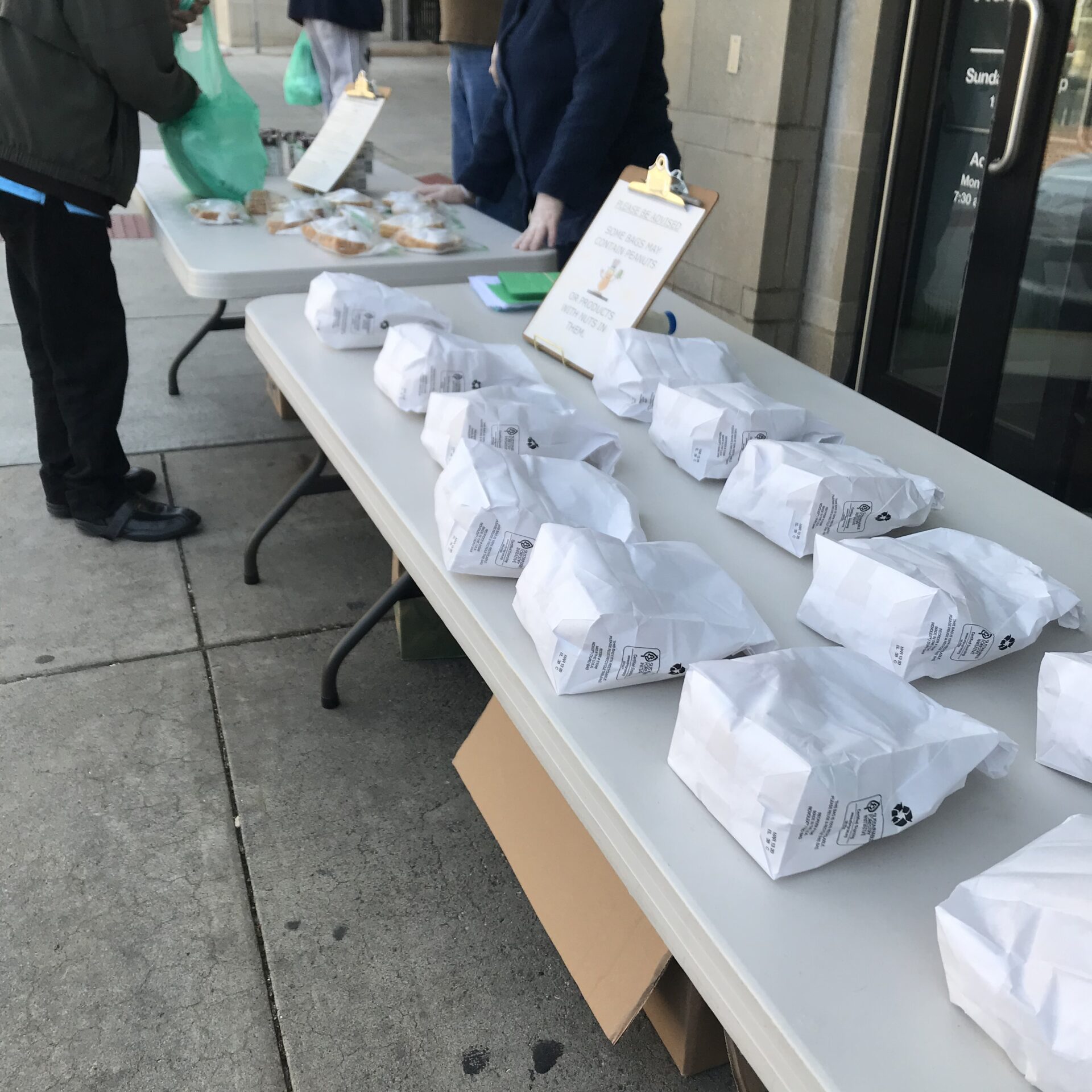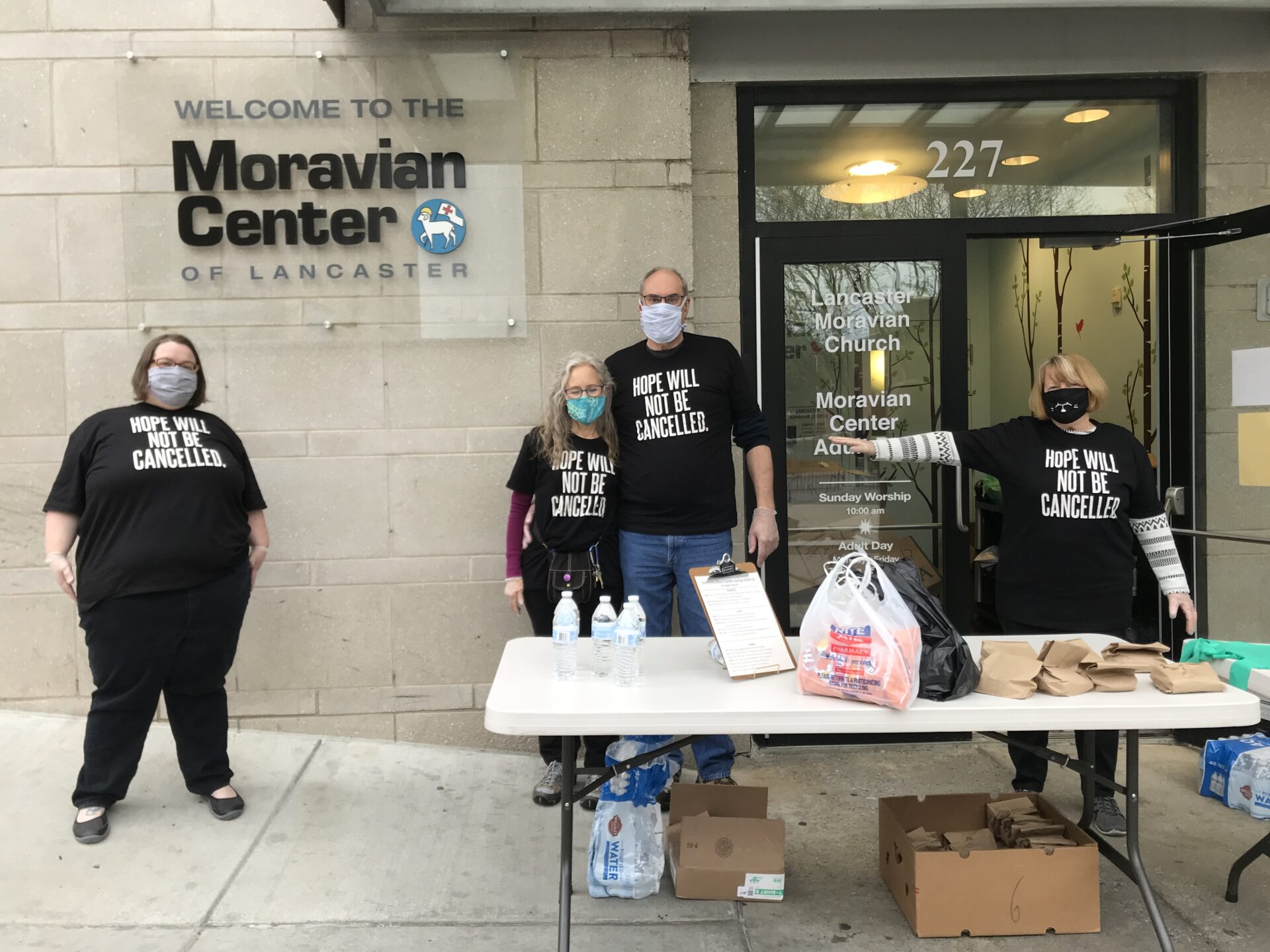
The Covid-19 pandemic created an unprecedented challenge for the network of churches and nonprofits that provide free meals to Lancaster's needy.
Even as need grew, some organizations had to suspend service: They didn't have layouts that allowed for social distancing, or they relied on elderly volunteers whose health would be at risk.
The Moravian Center recognized the challenge and was able to plug the gap, serving free grab-n-go meals twice a week.
"We have been blessed with generous donations of food items and monetary support," that have kept the program going, the Center said. Among the latter was the Lancaster Cares grant program. The Center was part of the very first round of Lancaster Cares grants, receiving $1,500 in April. In late summer, it received a second grant for $5,000.
From mid-March through the end of July, the Center’s volunteers, who also members of the Moravian Church congregation, served approximately 5,000 meals. The center and church are both based at 227 N. Queen St. in Lancaster.
Their generosity went beyond offering food. Through conversations with meal recipients, volunteers were also able to give referrals for housing, rehab programs, other food distribution efforts, and medical resources, not to mention spiritual comfort.
Many of the churches and nonprofits that suspended food service are now back up and running. So the Moravian Center has begun providing other much-needed items, such as masks, toiletries and cold-weather clothing such as socks.
Originally offered as preassembled bags, volunteers have started taking these items out on a cart and allowing folks to choose which items they need most.

Meanwhile, the Center continues to serve brown-bag meals every Tuesday evening and Saturday morning and will continue until it runs out of resources or until the meals are no longer necessary.

“Our connection with the folks we have been working with is important, and we wanted to be a support to the other churches in whatever ways we can," Pastor Mandy Mastros said.
"We offered our help in the transition process and then shifted our attention to how we could continue to meet a need within the community, walking alongside the folks we had gotten to know over the course of the distribution.”
Mastros said one of the Center’s volunteers has been so dedicated to providing assistance that, when she had to take a break for health reasons, she made it known that she could not wait to get back to business.
“It was clearly evident in those moments that the work that she was doing through this ministry was having a profound impact on her life,” Mastros said, “and those moments with her have had an impact on mine.”





